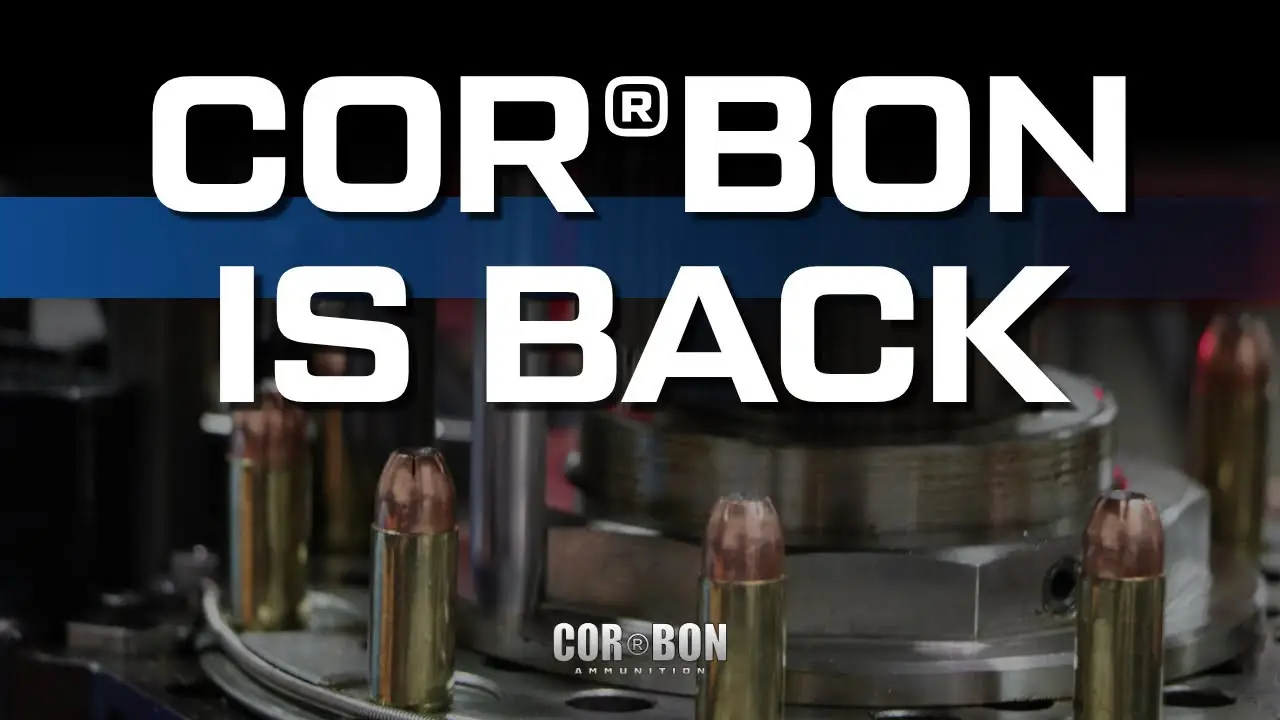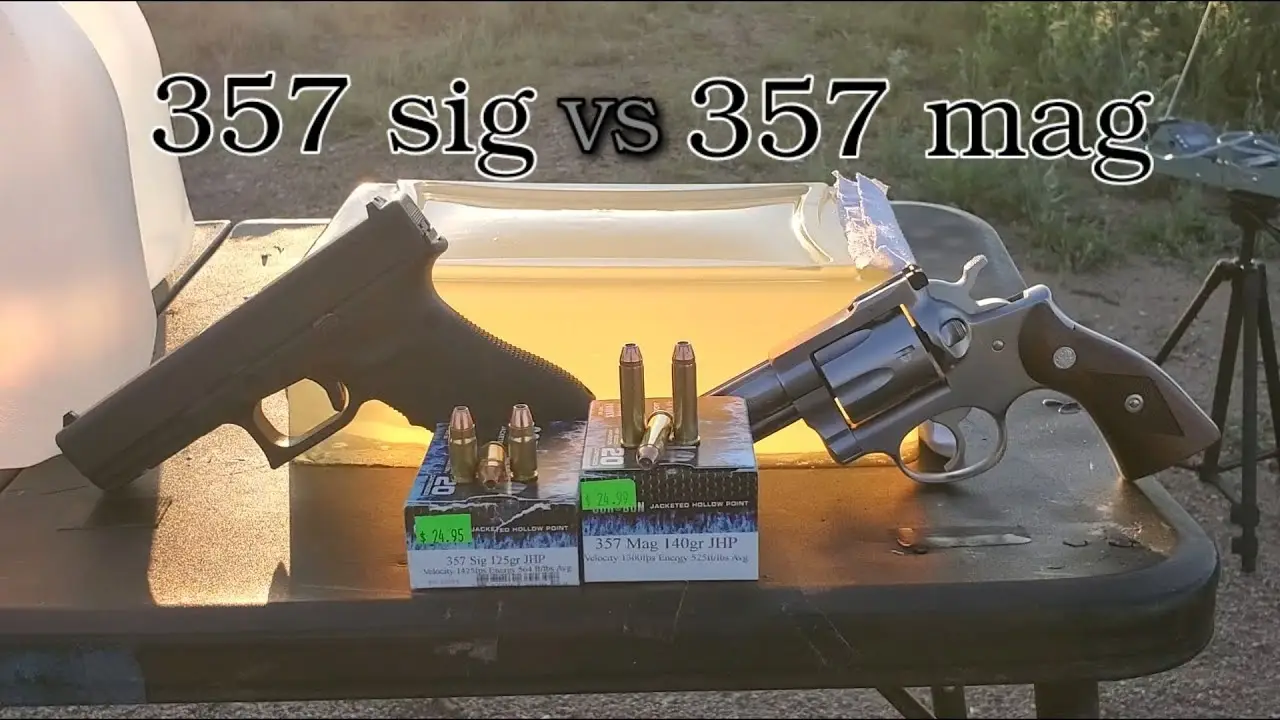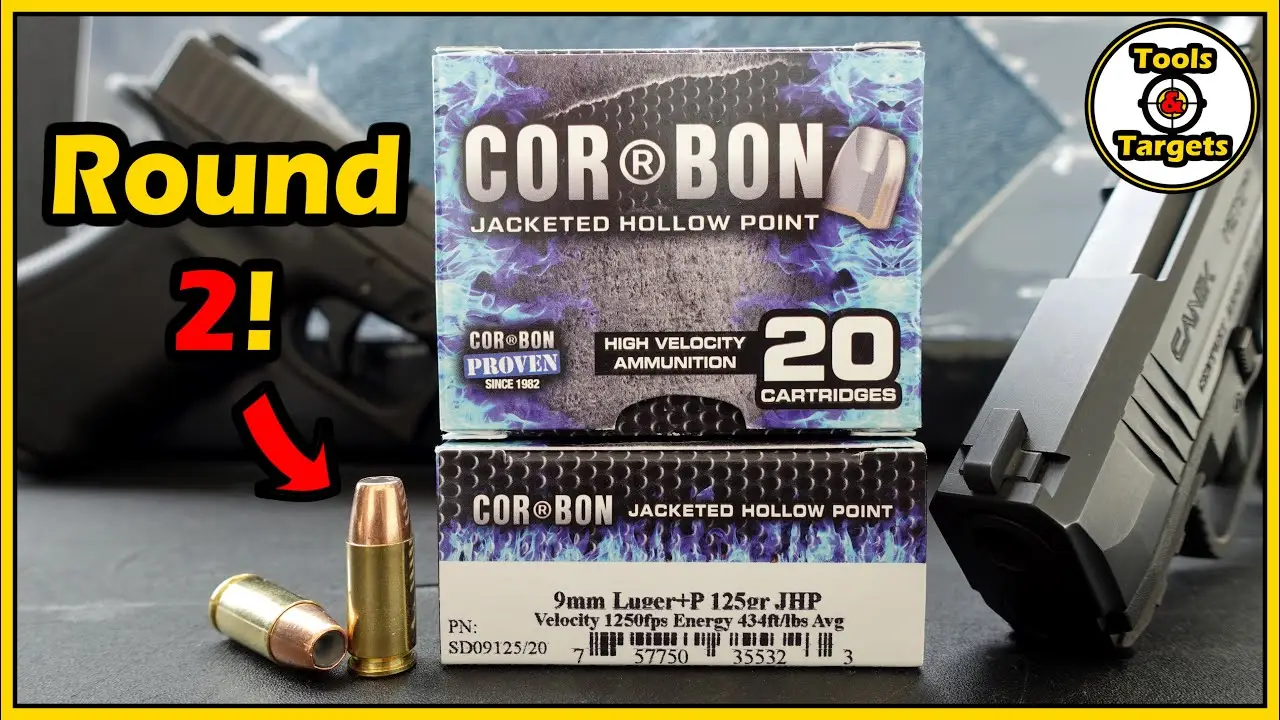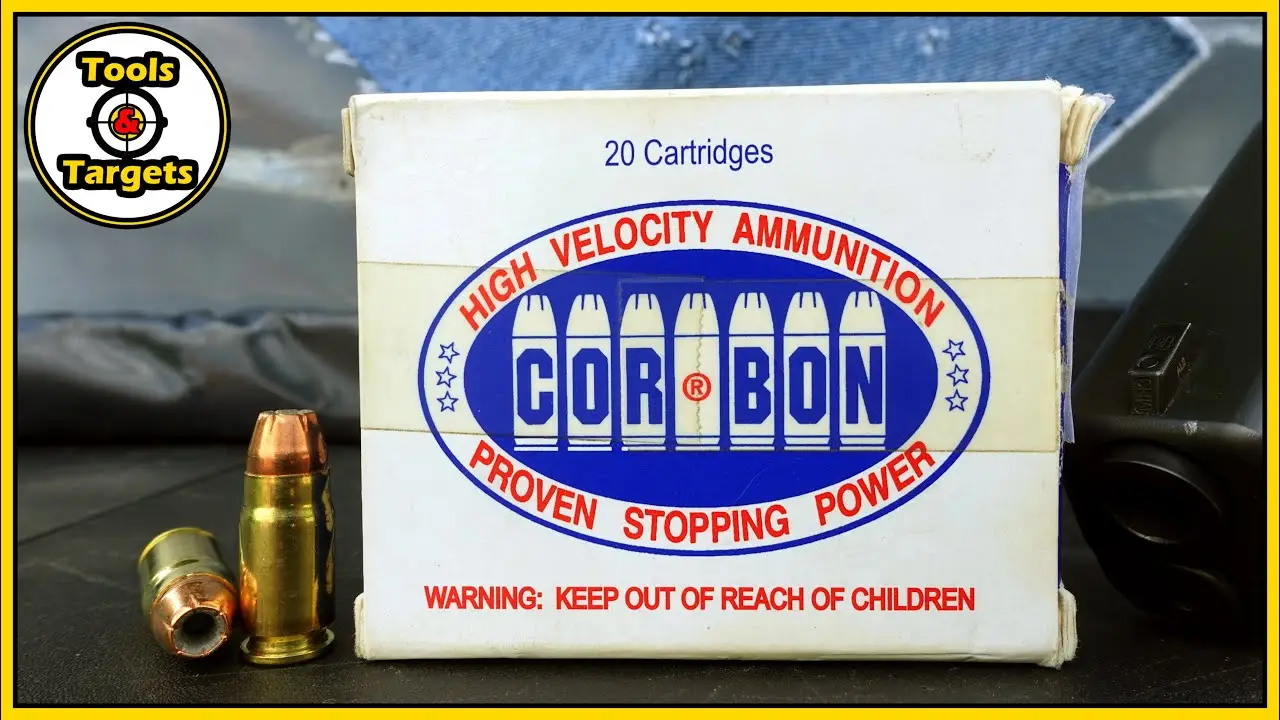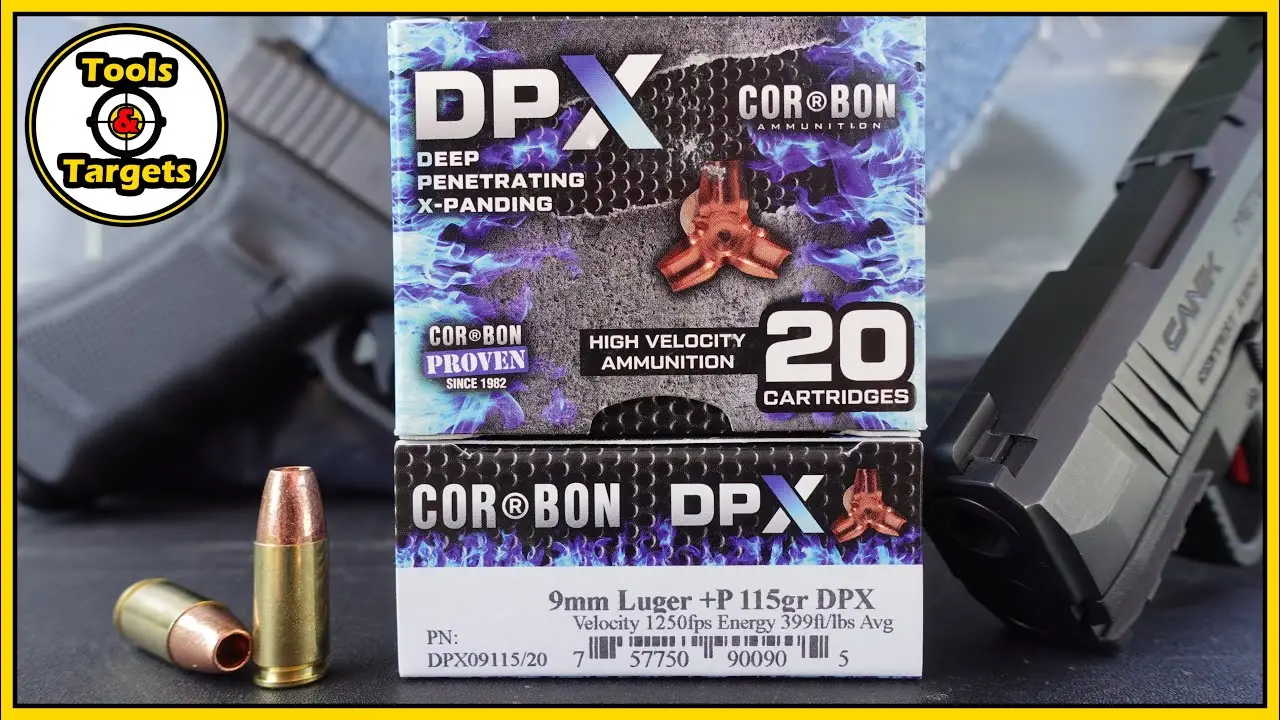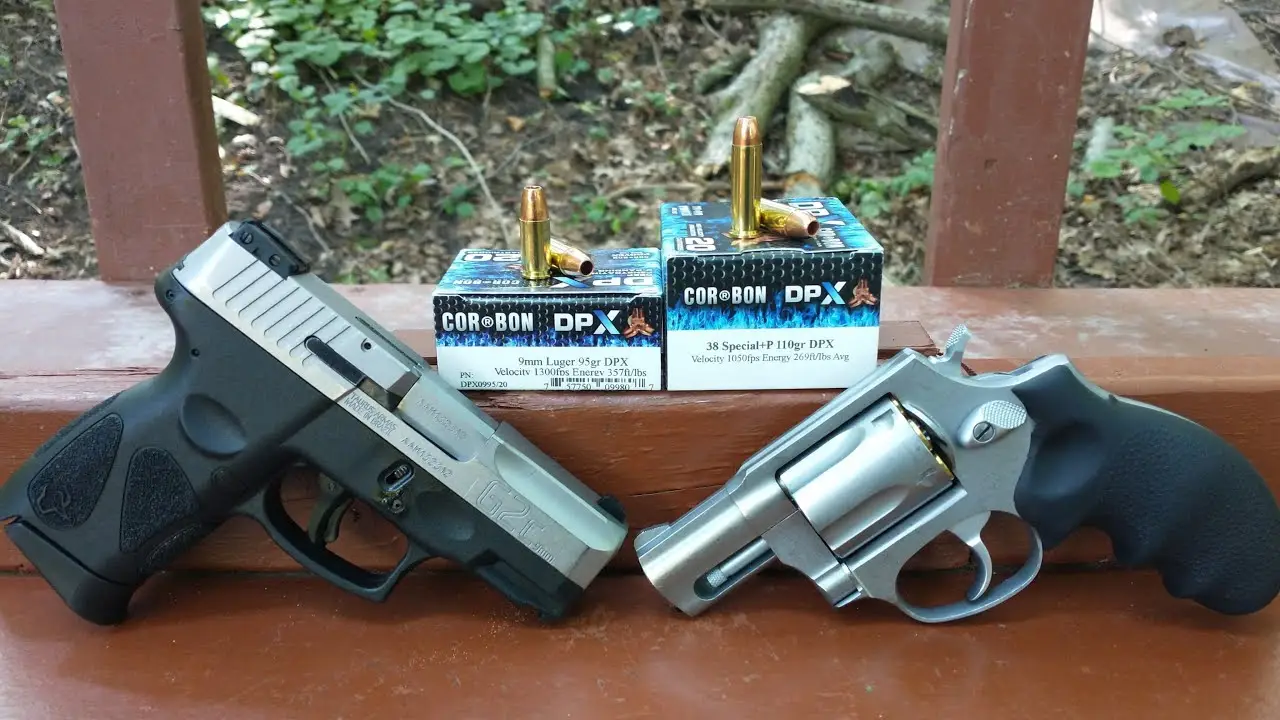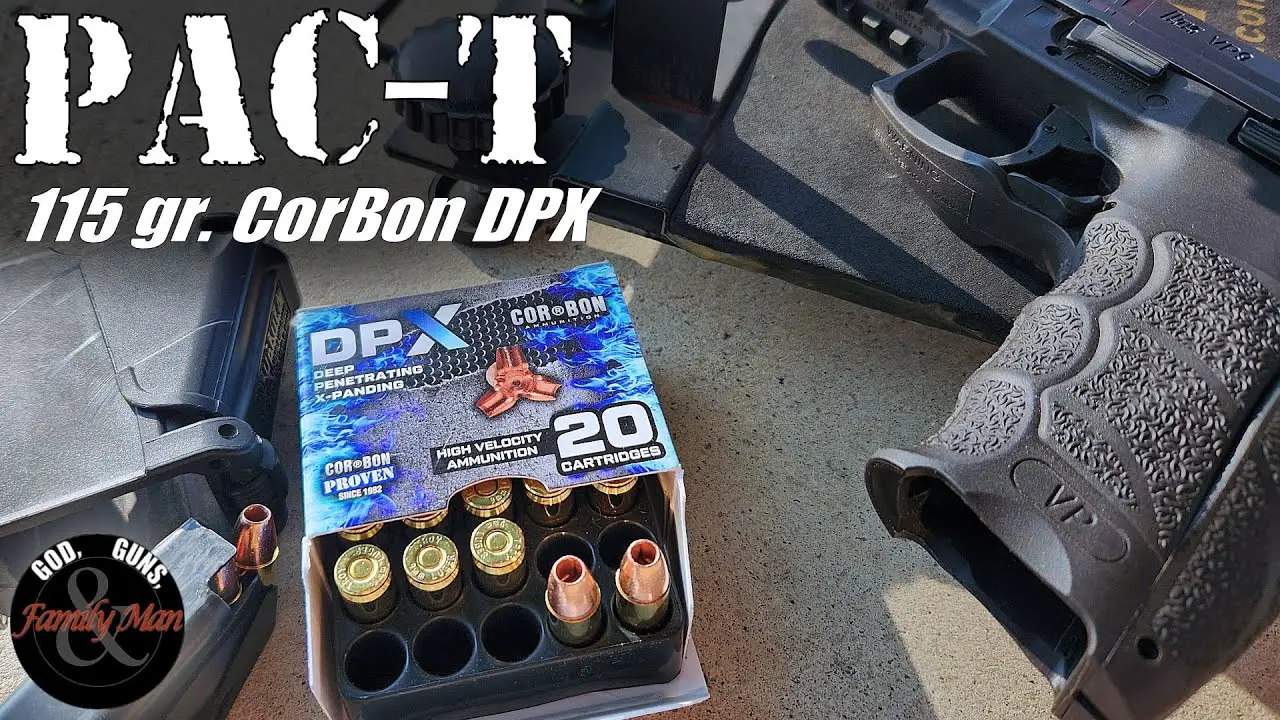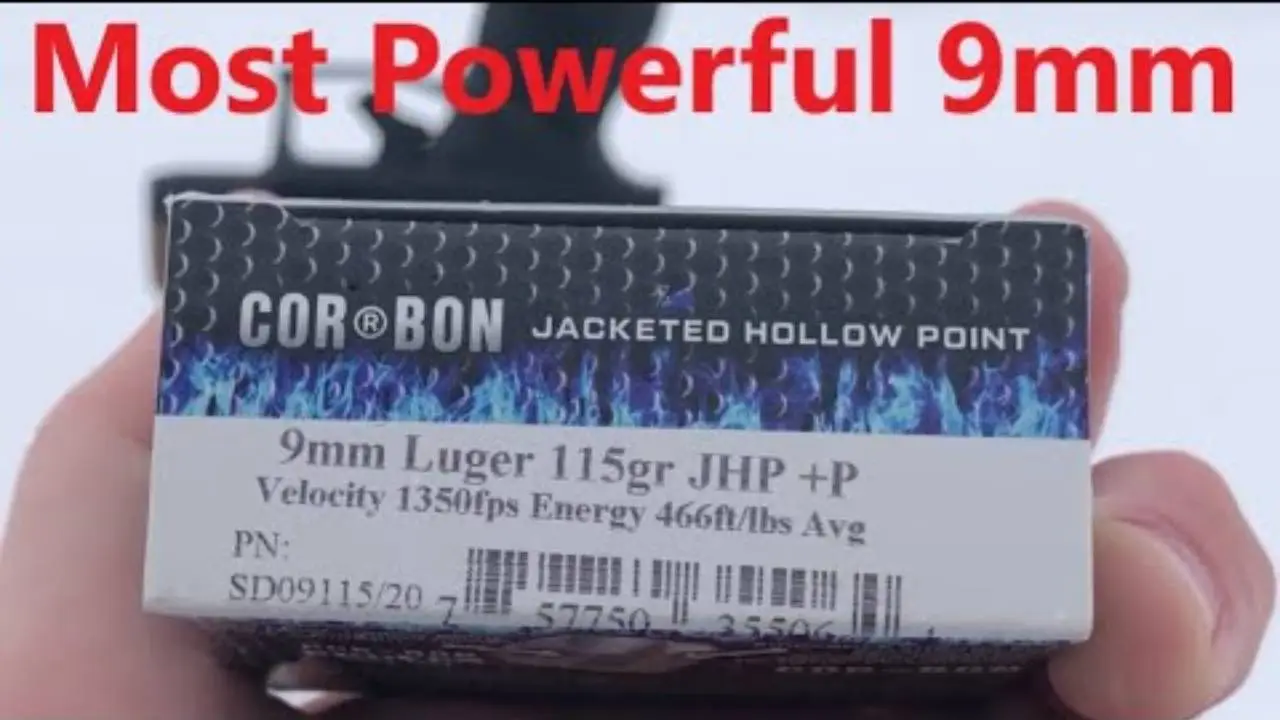Overview
This test compares the CorBon 125-grain 9mm +P with the Underwood 125-grain .38 Special +P bonded hollow point. Both rounds were fired from short-barrel handguns to see how they perform in real-world conditions.
The test guns included the Taurus GX4 for the 9mm and the Ruger LCR for the .38 Special. Each load was tested with five chronograph shots, followed by a ballistic gelatin test. The gelatin setup included four layers of 12-ounce denim and a 15-inch gel block backed with water jugs to ensure bullet capture.
Chronograph Results — Velocity and Felt Recoil
The CorBon 9mm +P produced noticeably higher speeds across all five shots. Recorded velocities ranged from 1,123 to 1,135 feet per second, averaging 1,127 fps. The load felt powerful in the compact Taurus GX4, creating sharp recoil and visible muzzle rise. Despite the kick, the consistency and energy output were impressive for such a small handgun.
The Underwood .38 Special +P was slightly slower but still strong for a short-barrel revolver. Speeds ranged from 1,029 to 1,059 fps, with an average of 1,041 fps. Recoil felt firm but more manageable in the Ruger LCR compared to the 9mm in the lightweight pistol.
In short barrels, the 9mm delivered a clear speed advantage, while the .38 Special provided excellent energy with easier control. Both cartridges maintained reliable ignition and accuracy throughout testing.
Gelatin Performance — Penetration and Expansion
Ballistic gelatin testing revealed that both loads expanded and penetrated reliably through denim.
The CorBon 9mm +P achieved 13 inches of penetration with full, even expansion. The recovered bullet showed a 0.57-inch diameter, indicating excellent expansion and a large wound cavity. It transferred energy rapidly, producing an aggressive temporary cavity and reliable barrier performance.
The Underwood .38 Special +P penetrated slightly deeper, reaching about 14.5 inches. Expansion measured 0.56 inches, forming a uniform, classic “gold dot” pattern. The bonded jacket helped maintain bullet integrity and ensured steady penetration without fragmentation.
Both rounds passed the denim test without clogging. The 9mm favored wider expansion, while the .38 Special leaned toward deeper penetration — both desirable traits in defensive ammunition.
Practical Takeaways and Recommendations
For short-barrel defensive handguns, both loads perform exceptionally well. The CorBon 9mm +P offers higher velocity and faster energy transfer, which can lead to strong expansion and effective wound channels. It is best suited for shooters who can manage sharper recoil or use heavier compact pistols.
The Underwood .38 Special +P provides controlled expansion with deeper reach. Its recoil is easier to manage in small revolvers, making it a dependable choice for shooters who prefer stability and predictability over raw speed.
When choosing between them, consider the firearm and the shooter’s comfort level. The CorBon 9mm +P performs best in heavier or more recoil-tolerant guns, while the Underwood .38 Special +P excels in lightweight revolvers that need consistent penetration and accuracy.
Conclusion
Both cartridges showed excellent short-barrel performance in velocity and terminal testing. The CorBon 9mm +P reached higher speeds and slightly larger expansion, while the Underwood .38 Special +P achieved deeper penetration with nearly identical expansion.
The choice ultimately depends on firearm type and recoil preference. Choose the 9mm +P for maximum velocity and expansion, or select the .38 Special +P for deeper, steadier penetration and easier control.
Either way, both rounds deliver dependable stopping power for compact defensive handguns.

John Doe
Lorem ipsum dolor sit amet consectetur adipiscing elit dolor

